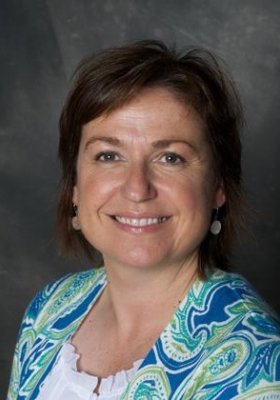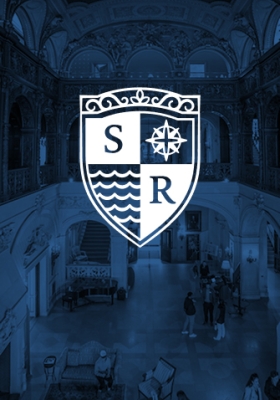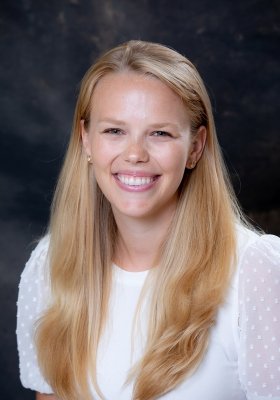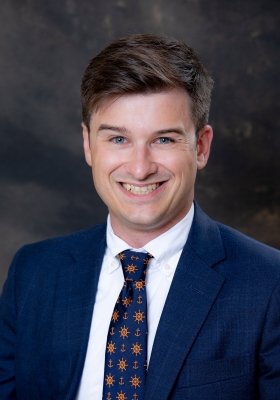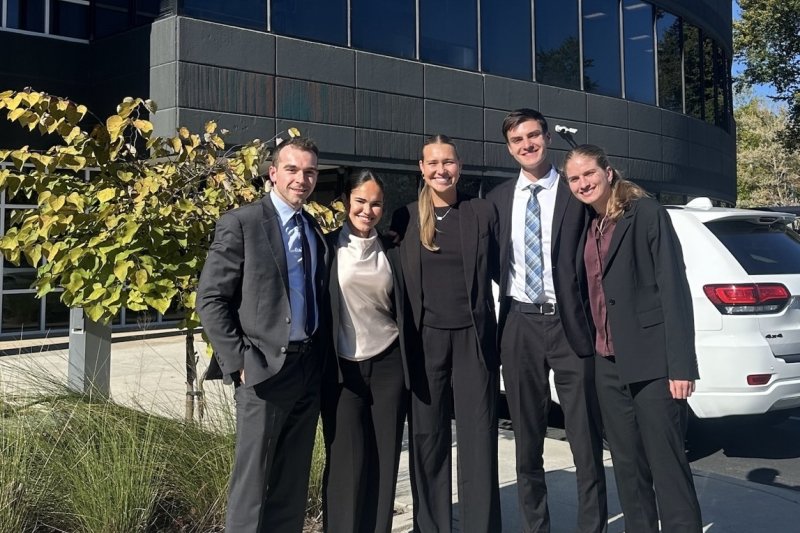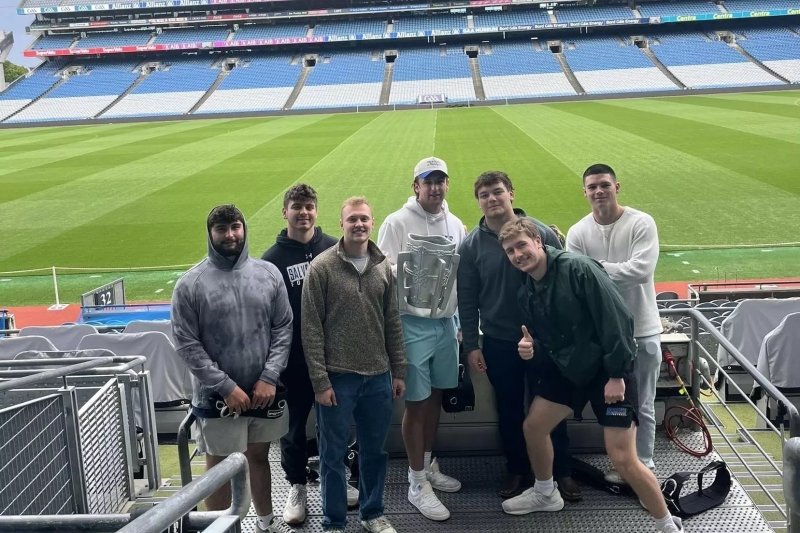Economics Major

Salve Regina University's bachelor's degrees in economics provide the analytical and problem-solving skills necessary to investigate and critically evaluate economic conditions and trends. Through coursework and experiential learning, our graduates are well prepared for a wide variety of career opportunities in today's highly competitive global business environment, as well as graduate study.
As a business manager, my economics and MBA degrees have provided me with the tools necessary to operate efficiently under high pressure, communicate in a clear and concise manner, and have the confidence to trust my abilities – all because of the educational foundation Salve built beneath me.
Garvin Jones '16, '17 (MBA), underwriter, renewable energy, kWh Analytics
Prepare to Address Economic Issues
We offer both a B.S. and B.A. in economics. The B.S. familiarizes students with the quantitative tools used to analyze economic policy and includes business courses that focus on the application of theory. The B.A. provides a strong background in economics while allowing students to double major in another discipline such as history, political science or psychology.
Both programs integrate a liberal arts tradition with the University's mercy and justice mission to emphasize ethical decision-making and responsible leadership. As a result, our graduates emerge as engaged, principled world citizens who are prepared to address economic issues that concern individuals, firms and nations, both in the domestic setting and internationally.
Hands-On Research Into Real-World Issues
Through in-depth economic impact studies, our business and economics majors conduct research that highlights how events, issues and organizations play a role in the greater community. In addition to researching the role Salve plays in the region, students have been commissioned to complete economic impact studies for Newport’s famed Cliff Walk, the Vietnam Veterans Memorial Wall in Fall River, the Naval Undersea Warfare Center, the Rhode Island Hospitality Association and more.

The Salve Compass
Connecting college to career, the Salve Compass program ensures that every student has the skills and knowledge to succeed in the job market. Innovative programming such as the Summer Compass provides unique opportunities for interdisciplinary experiences that enable students to collaborate with faculty and immerse themselves in our vibrant Newport community.
Career Paths in Economics
Salve students are well prepared for a wide variety of career opportunities in business and government. Corporations value the training received by economics majors, while the range of jobs in government is as expansive as government itself.
- Financial analysts guide individuals and businesses in making investment decisions based on their assessment of various financial products like stocks and bonds.
- Personal financial advisors give advice to individuals and couples who are making financial plans, such as preparing for retirement or arranging for insurance policies.
- Financial managers are responsible for the overall financial well-being of an organization, which often involves analyzing data and presenting reports.
- Loan officers evaluate the financial situation of people who apply for loans, often using specialized software.
- Revenue agents ensure that the government receives its legal tax payments by analyzing financial records and arranging for payment as necessary.
- Budget analysts help institutions manage their finances, monitor their spending and provide advice and estimates about future economic projections.
- Research economists develop new general models and theories of economics based on the work of others and their own research and analysis.
- Economics professors instruct students on the principles, theories and methods of economics. An advanced degree is usually required.
Omicron Delta Epsilon International Honor Society for Economics
Omicron Delta Epsilon is one of the world's largest academic honor societies. Honoring scholastic achievement in the field of economics, Salve’s chapter provides opportunities for students and faculty to collaborate and network.
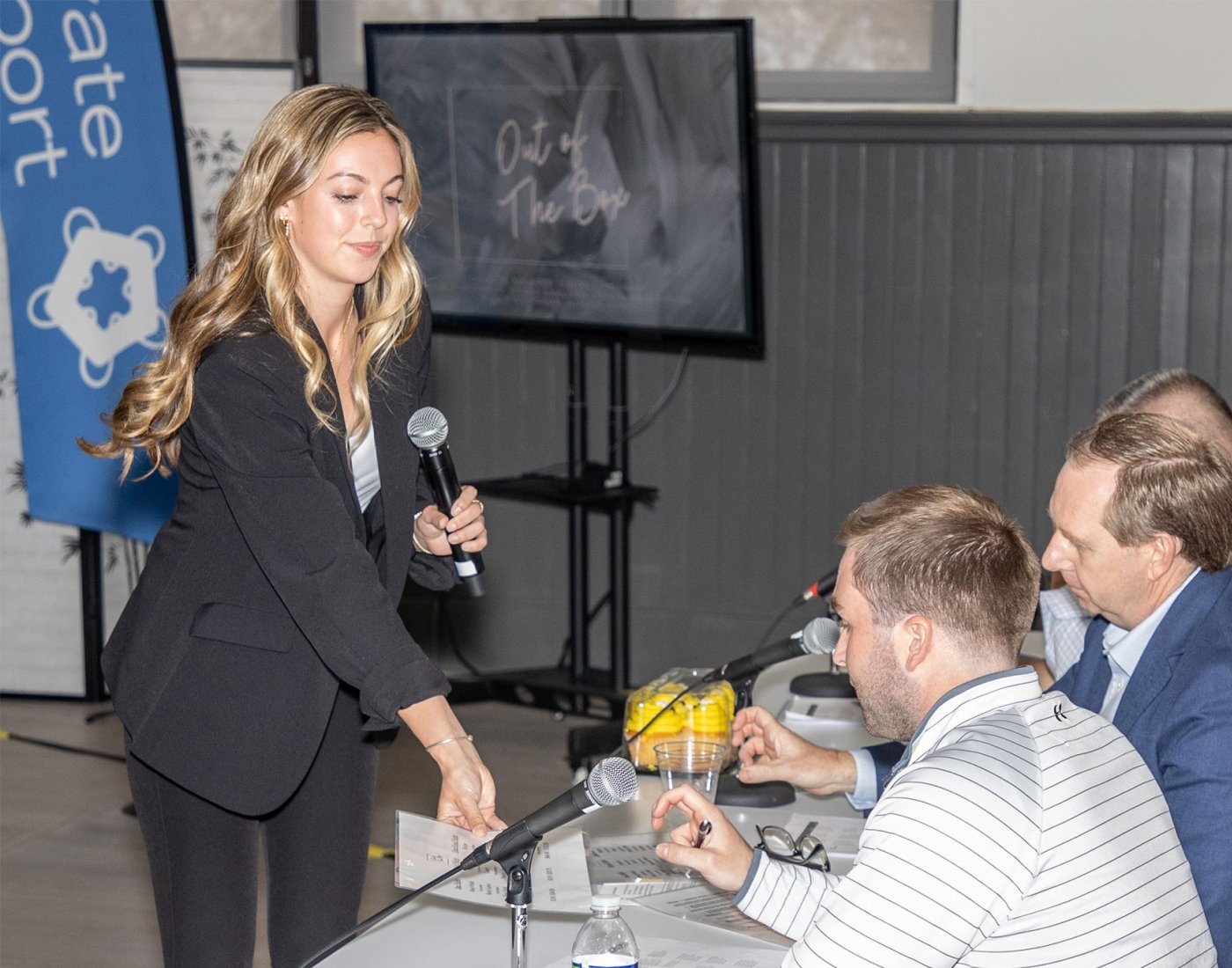
Unmatched Opportunities
As a first-year economics major, Lillian Fitzgerald '25 wasn't sure what the future would bring but found unwavering support from the economics faculty. "The guidance and opportunities from the faculty in the department supported me in discovering my path after Salve. One of my greatest opportunities was co-authoring a book chapter with Dr. Adam Witham. The process of writing this chapter opened my eyes to the kind of work that can be done in economics and sparked my interest in pursuing a Ph.D. in health and public economics."

Degree Options
Bachelor of Science in economics
Business and economics core requirements provide students with a comprehensive foundation in key business disciplines, ensuring they develop essential knowledge and skills applicable across all sectors. Required for all Bachelor of Science majors within the department – including accounting, business administration, business economics, finance, global business and economics, healthcare administration and marketing – these courses cover critical areas such as financial and managerial accounting, macroeconomics, business management, communications, financial management, marketing, business ethics, business law, strategy, statistics and business analytics. This structure offers the flexibility to change majors or add minors without losing progress, empowering students to tailor their education to their evolving interests and professional goals.
Bachelor of Arts in economics
The B.A. in economics allows students the opportunity to earn a major that expands upon Salve's liberal arts foundation. It offers students a strong background in economics while at the same time allowing students to double major in other disciplines such as political science, history or psychology.
Minor in economics
The economics minor is open to students from all majors. Minors are able to apply the skills and theory learned in the required courses to their primary area of interest.
Meet Our Economics Faculty
In courses such as Money, Banking and Financial Markets, our faculty emphasize the links between the financial system and the real economy. In addition to changes in economic fundamentals, factors such as congressional and Federal Reserve policies, geopolitical events and natural disasters play a role in influencing the financial markets.
Department News



